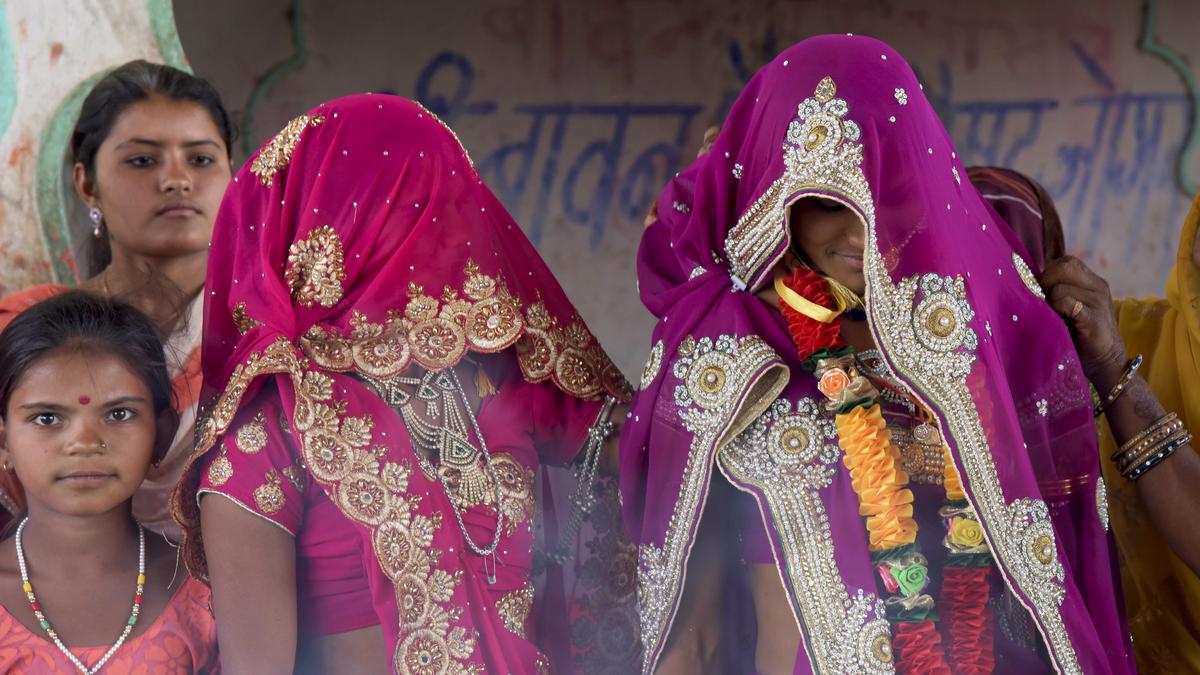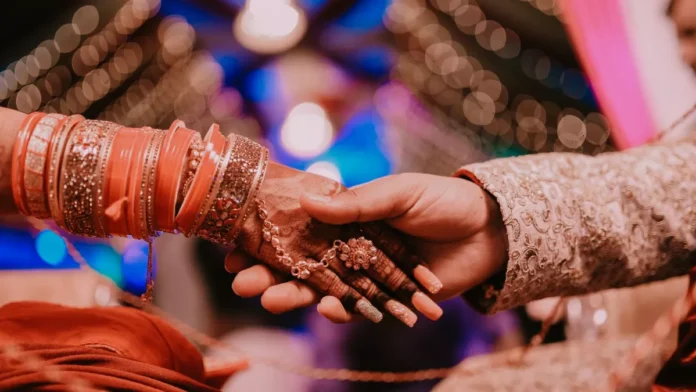In a shocking incident from Jaitpura village, Rajgarh district of Madhya Pradesh, a girl who was engaged at the age of 2 was married off at just 16. This case sheds light on the harrowing practice of child marriage still prevalent in several parts of India, where centuries-old traditions rob children of their childhood.
The girl, Geeta (name changed), now 22, is a mother of a young daughter and has vowed to break the cycle of child marriage in her family. Her story has drawn attention to a grim practice that continues to thrive in over 50 villages in the region, affecting hundreds of children every year.
The Incident: Childhood Traded for Tradition
Geeta’s engagement was decided before she could even walk. At the age of 2, her family marked the engagement with the exchange of symbolic ornaments and sweets. By the time she turned 16, her future was sealed as she was married into a family chosen years prior.
“Child marriages like mine are common here,” Geeta said. “But I won’t let this happen to my daughter. This must stop.”
Her story is one of many in Jaitpura, where child marriages are normalized under the guise of tradition. Local customs, such as Jhagda-Natra, impose hefty penalties on families seeking to break engagements, forcing many to comply with these outdated practices.

Tradition Meets Exploitation
Jaitpura and its neighboring villages have long been entrenched in customs that encourage early engagements and marriages. These practices often start even before the children are born.
“In many cases, families agree to engagements when the woman is still pregnant,” a local parent revealed. “It’s decided that if one family has a boy and the other has a girl, they’ll be engaged. These commitments are rarely broken.”
Economic pressures play a significant role in perpetuating this cycle. Parents often see early marriages as a way to reduce financial burdens, with engagements finalized during casual discussions or even under the influence of alcohol.
The Cost of Breaking Free
For families who dare to break these traditions, the consequences are severe. Social councils impose fines, known locally as Jhagda, which can amount to thousands of rupees. In some cases, the fines are so steep that families are forced into debt or social ostracization.
“Even if parents want to protect their children from early marriage, the system makes it impossible,” said a local activist.
These penalties, combined with a lack of education and awareness, ensure that the cycle of child marriage continues unbroken.

Alarming Statistics
According to the National Family Health Survey-5, 46% of women aged 20-24 in Rajgarh district were married before the legal age of 18. Education remains a distant dream for many in the region, with over half the women in the district being illiterate.
The lack of education not only fuels these practices but also leaves families unaware of the legal consequences of child marriage.
Legal Loopholes and Enforcement Gaps
Despite strict laws against child marriage in India, enforcement remains a significant challenge, particularly in rural areas. In many cases, families exploit legal loopholes to justify early marriages, citing cultural norms and economic hardships.
Local authorities often struggle to intervene, as these practices are deeply ingrained in the community’s social fabric. “We need stronger enforcement and more awareness campaigns to tackle this issue,” said a representative from a child welfare organization.
Government and Community Action Needed
Geeta’s story is a stark reminder of the urgent need for action. While government initiatives and laws exist to prevent child marriages, their impact remains limited without proper implementation and community involvement.
Efforts to educate families about the consequences of child marriage and provide alternative solutions for economic hardships could be key to breaking the cycle. Advocacy groups are calling for increased support for rural education and stricter enforcement of child marriage laws to protect vulnerable children.

